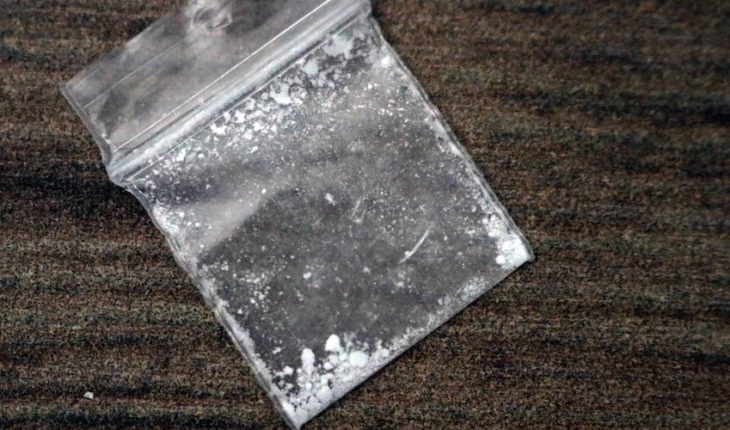Judge Víctor Octavio Luna Escobedo, from Room 14 of the courthouse in Administrative Matters of Mexico City, issued two rulings allowing two people to have an authorization “for personal and playful consumption” of cocaine.
The decision comes after a U.S.-promoted ulator against Crime. “Our goal with this and other cases has been to encourage public discussion about drugs and force the reorientation of security policy. We want to promote different strategies through innovative ways and so far we have been successful,” says its director, Lisa María Sánchez Ortega.
You may be interested: Cut approves project that orders the Ministry of Health to regulate the medicinal use of cannabis
One of the glitches, to which he had access Political Animal, is dated May 17. The protection was filed after a person (who protects his identity for security reasons) filed a petition with the Federal Commission for the Protection of Health Risks (Cofepris). In it he sought authorization to be able to make “adult personal use” of cocaine. The application was not met and appealed to the courts in an indirect amparo trial.
Cofepris requested that the judgment be reviewed, so the case is in the hands of a Collegiate Court composed of three judges. If they ratify the sentence, it will be final. If they take it back, the case is dropped, as there is no recourse possible. It is unquestioned whether these three judges will take the last decision or if, on the contrary, they are declined by the Supreme Court of Justice of the Nation (SJCN).
“In the coming weeks we will be able to know whether the cases are resolved by the Collegiate Circuit Courts or by the Supreme Court of Justice of the Nation because of their importance and significance. Regardless of who dictates the sentences, they will be final and unappealable,” says Víctor Daniel Gutiérrez Muñoz, project coordinator for Mexico United Against Crime and one of the lawyers in charge of the case.
Cofepris sources noted that “this is an open procedure” and therefore declined to make statements.
“It’s not legalization”
Judgments grant authorization “for the personal and playful consumption of cocaine (methyl ester of benzoylecgonine) and other acts correlated to self-consumption, i.e. possession, transport, employment and use, excluding acts of commerce as distribution, alienation and transfer.”
The ruling also makes clear what the user cannot do: “drive vehicles or use dangerous instruments under the effects of the substance”, or consume “in public places, in the presence of minors, or to induce third parties to also consume.” In addition, the judge says, “the complainer shall not introduce, consume or attend her work, occupation, profession, employment, trade or art under the effect of cocaine”.
This authorization is limited to 500 milligrams per day, which is the amount included in the “Maximum Personal and Immediate Dosage Guidance Table” set out in section 479 of the General Health Law.
This regulation raises quantities that are considered “for strict and immediate personal consumption”. That’s 5 grams of marijuana, two grams of opium, half a gram of cocaine, 50 milligrams of heroin, 0.015 milligrams of LSD, 40 grams of MDMA, methamphetamine and MDA. As possession remains a crime, if a person is intercepted with this amount or something less is conducted before the Public Prosecutor’s Office. If that same person is arrested on three occasions with amounts for personal use, he or she is required to go to the “appropriate treatment,” according to the law.
Find out: 11 Mexicans are detained and a Colombian person with 422 kilos of cocaine in Guatemala
The rule determines that between these amounts and their multiple per thousand is established the “narcopull” strip, which is punishable by sentences of between 10 months and three years in prison. To give a practical example: this would affect a person being caught with a gram of cocaine, which is the standard measure of sale.
From the multiplication per thousand (half a kilo in the case of cocaine) is considered large-scale trafficking and penalties are multiplied.
The aim of promoting the debate
The strategy that led to this resolution is similar to that which Mexico United Against Crime argued with the marijuana case, which in 2018 won its fifth resolution in the Supreme Court that rejected the absolute prohibition of its playful use and that Therefore, he settled jurisprudence. However, it has substantial differences, such as times and their impact.
‘We’re not chasing massive amparos and there’s not going to be a campaign similar to #CannabisConPermiso. If in a year, two or five conditions are met, we’ll talk about it. This is the first time that in the first instance it is resolved in a positive way and what it tells us is that there is a different way of dealing with drugs since the judiciary,” says Sánchez Ortega.
Read more: The Green Road to Marijuana Legalization
In his view, “drug policy reform does not start and is not exhausted with cannabis, the rest of the markets must also be regulated.” Its objective: to promote the debate on decriminalization and to end the so-called “war on drugs” from a public safety perspective.
The ruling, as reiterated by the Director of Mexico United Against Crime, does not imply the “de facto” legalization of cocaine in quantities less than half a gram. “This is a step to generate debate. We want to encourage discussion on a topic that remains taboo and we have to work with sectors of society. Encourage public discussion and legislative proposals for the decriminalization of the use of all drugs.
The arguments of the protection and the judge’s response
Amparo claimed that the ban on the use of cocaine violated the “free development of personality recognized in Article 1 of the Political Constitution of the United Mexican States”. In this sense, the judge recognizes that they may choose to perform certain recreational or recreational activities. “That choice may include intake or use of substances (drugs) that produce experiences that in some sense ‘affect’ the person’s thoughts, emotions and/or sensations,” the ruling says.
“Cocaine intake can have different purposes, including stress relief, intensifying perceptions, or a desire for new personal and spiritual experiences,” the judge says.
“It is concluded that the total prohibition contained in the last paragraph of Articles 235, 236, 237 and 290 of the General Health Law has an onthe content of the right to free development of personality, since it constitutes a legal obstacle that prevents the exercise of right to decide what kind of recreational or recreational activities are to be carried out, while also preventing lawfully carry out all the actions or activities necessary to be able to realize that choice through self-consumption.
In his argument, the judge goes on to assess the conflict between the objectives of the General Health Act, which seeks to protect ‘health and public order’ with the prohibition of cocaine use, and the complainer that the veto contravenes their rights Constitutional. Warns that this is an ‘addictive’ substance and that “there is a risk of dependence on high consumption”.
The ruling is supported by a report by the National Commission against Addiction to alert you to the effects of low-dose, high-dose and chronic consuno. “Cocaine use does not pose a significant health risk, except if used chronically and excessively,” he says.
“This federal court determines that the legislative measure of the absolute prohibition of the playful consumption of cocaine is not necessary because there are equally suitable alternatives to ensure the health of consumers and protect society, but less harmful; such as the controlled self-consumption of the drug, in private spaces, away from minors and without the incitement of third parties to consume,” the ruling says. “These alternatives guarantee: on the one hand, health and social welfare; and on the other hand, the desire of consumers to ingest cocaine.”
Unprecedented in other parts of the world
“The failure is paradigmatic not only in Mexico, but in the world. The first cannabis-related sentences in other countries are serving 20 years. However, there is no precedent for similar court decisions with other drugs. Mexico and its court decisions are laying important precedents for other courts,” says Sánchez Ortega.
That it is precisely in Mexico also has its importance. Since 2006 the country has suffered a spiral of violence initiated after the declaration by President Felipe Calderón of the so-called “war against drug trafficking”. Since then, it is estimated that at least 200,000 people have died and another 40,000 have been missing.
“The current drug policy is a failure in all areas,” says Sánchez Ortega. In his view, the focus is on users, which is the weakest link, rather than focusing on “drug trafficking networks and corrupt authorities.”
United Mexico against Crime has experience in this type of litigation. It has promoted the debate on the decriminalization of drug use since 2011. That is, during the tenures of Felipe Calderón, Enrique Peña Nieto and, now, with Andrés Manuel López Obrador.
Sánchez Ortega believes that, with the current government, there are more options to coincide with the authorities’ strategy. It gives as an example the National Development Plan 2019-2024, which in point five reads: “the prohibition strategythis is already unsustainable, not only because of the violence it has generated but because of its poor public health outcomes: in most of the countries in which it has been implemented, this strategy has not resulted in a reduction in consumption. Worse, the prohibitionist model inevitably criminalizes consumers and reduces their chances of social reintegration and rehabilitation. The “war on drugs” has escalated the public health problem posed by substances currently banned into a public safety crisis.”
The activist notes that she has met with representatives from all benches, including the majority of Morena, and hopes that the debate could lead to measures that promote decriminalization.
According to the 2016-2017 National Survey of Drug, Alcohol and Tobacco Use, 3.5% of Mexicans once consumed cocaine. This figure rises to 9.9% if asked about illegal substances.
According to a 2016 study by the Center for Economic Research and Teaching’s (CIDE) Drug Policy Program, 41% of federal drug inmates were locked up for possessing substances worth less than 500 pesos.
What we do in Animal Político requires professional journalists, teamwork, dialogue with readers and something very important: independence. You can help us keep going. Be part of the team.
Subscribe to Animal Politician, receive benefits and support free journalism.#YoSoyAnimal
translated from Spanish: Judge endorses possession and playful use of cocaine for two people
August 20, 2019 |





